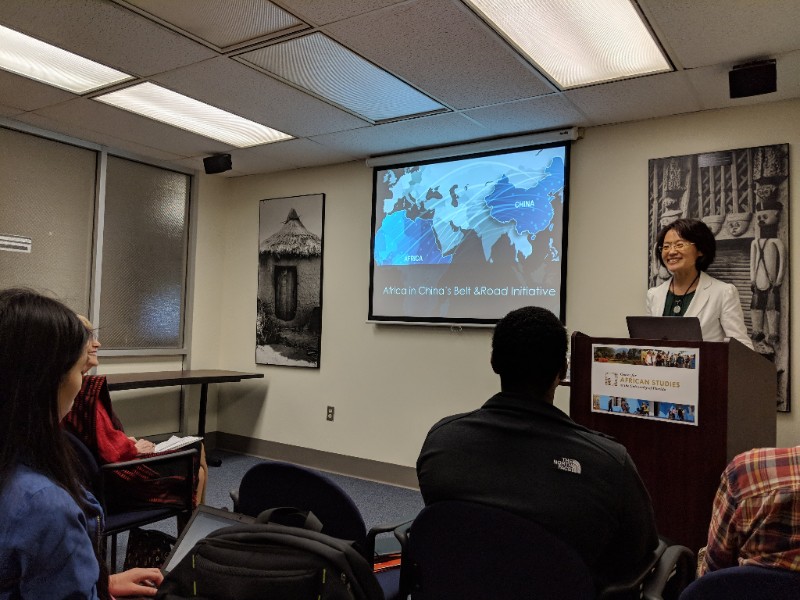On April 6, the China in Africa Working group hosted Dr. Liu Haifang (Peking University) for her Baraza lecture, “Africa in China’s Belt and Road Initiative.” The lecture focused on the background of Chinese-African partnerships prior to the Belt and Road Initiative (BRI). The BRI was proposed in 2013, intending to improve infrastructure along the Silk Road Economic Belt and the Maritime Silk Road. Five African countries became participants in the BRI—Kenya, Djibouti, Egypt, Morocco, and Madagascar.
Dr. Haifang explained that the influence of the Forum on China-Africa Cooperation (FOCAC) affected the inclusion of Africa in the BRI. In 2000, FOCAC was institutionalized, seeking to strengthen consultation and expand cooperation between Africa and China, and to promote political dialogue and economic collaboration. Following the establishment of FOCAC, several key organizations formed that reinforced Chinese-African partnership including the Chinese Agricultural Demonstration Center, Special Economic Zone, Chinese African Development Fund, and the South-South Cooperation Climate Change Foundation. Through this history of diverse collaborations, Dr. Haifang argues that Chinese-African relationships evolved from aid to mutual business cooperation. The BRI also is expected to have great benefits to China, as it places the country in the middle of the world’s trading and production systems, with the BRI linking developed and developing countries through infrastructure. Dr. Haifang concluded the presentation by briefly discussing some of the country-specific details of the BRI.